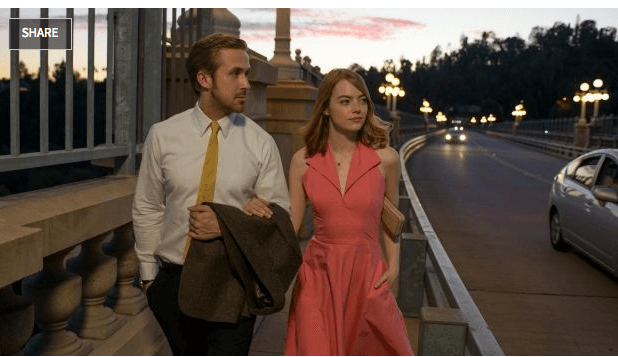First published in Daily Life/The Sydney Morning Herald, January 2017
If there was a bible for the modern-day dapper gentleman, it would be written by Sebastian from La La Land.
In Damien Chazelle’s Oscar-tipped ode to the golden age of Hollywood musicals, Sebastian (Ryan Gosling), a Los Angeles pianist who dreams of saving jazz from a world whose ears have been dulled to the joys of a truly great bebop, only listens to vinyl. He collects furniture owned by dead guys with names like Hoagie Carmichael. And he whisks Emma Stone’s Mia to the movies in a red, vintage convertible and rocks a three-piece suit during the California summer without breaking a sweat.
If all this sounds pretty tedious, then you haven’t reckoned with the force of Gosling’s sweetly furtive glances and aw-shucks brand of charm. La La Land doesn’t just pine for a bygone time when men in suspenders courted wasp-waisted women and you could resolve the murky business of romance with a spontaneous dance in a jazz club. It makes us wish that time was now.
La La Land is less responsible for this newfound obsession with dapper gentlemen than it is for giving it filmic form. Open any men’s lifestyle magazine and you’re likely to find advice on the art of beard grooming (hint: a comb and pricey moustache wax), new-school dating guides that sound suspiciously old school (“every woman comes with baggage, your job is to help her unpack it”) and listicles on gentlemanly etiquette. According to my personal favourite,Country Life‘s March 2016 “The 39 Steps to Being a Gentleman”, a true gentleman always tips the gamekeeper, can undo a bra with one hand and would not go to Puerto Rico. Oh, and believes that it’s acceptable to use the word “maketh”
Visit any neighbourhood in Brooklyn, London or Melbourne and you’re bound to spot at least one whiskey bar that takes design cues from the kind of men’s club frequented by Winston Churchill, one barbershop that advertises shoe shines and hot shaves and one guy dressed like Benjamin Button, complete with newsboy cap and polished brogues.
Of course, dressing like a dapper gentleman is also a stylish way to signal to distinguish yourself from a garden-variety misogynist. A dapper gentleman would never ghost you, brag about your bedroom exploits on Reddit or ask for anything as déclassé as a golden shower. He’d just arrive, unannounced, in a vintage red convertible and sweep you away somewhere where there was lots of dancing, preferably under a full moon. What could be better than that?
I shudder every time I find myself in a colonial-themed bar because I know that the pleasure of sipping an Old Fashioned out of an antique glass would never have been extended to someone like me.
And as Katie J. M Baker argues in a 2012 article in Jezebel, chivalry — the religion of gentlemen everywhere — evolved to counter the barbarism of the Middle Ages by asking men to limit their violence to their role as protectors.
A September 2016 study by the Journal of Personality and Social Psychology found that benevolent sexism, an attitude that champions female ambition, as long as it preserves the ideals of traditional femininity, was seriously eroding workplace equality.
And in the same month, a mens-only Sydney barbershop that specialises in Mad Men-era grooming came under fire for refusing to admit a transgender man. The trope of the dapper gentleman tells us that a great suit and good taste must be a sign of progressiveness. But anyone who recalls that Frank Sinatra once threw a champagne bottle at Ava Gardner will tell you, a sign of progressiveness can sometimes be a red flag.
In a November 2016 New York Times article, Manohal Durgis writes that La La Land has made musicals matter. “Afterward, I realised that this must have been what it was like to watch Fred Astaire and Ginger Rogers during the Great Depression,” she writes.
But maybe La La Land isn’t a fantasy for a world in which misogyny has gone mainstream. If you’ve fallen out of love with the trope of the dapper gentleman, it starts to look like a confirmation instead.
